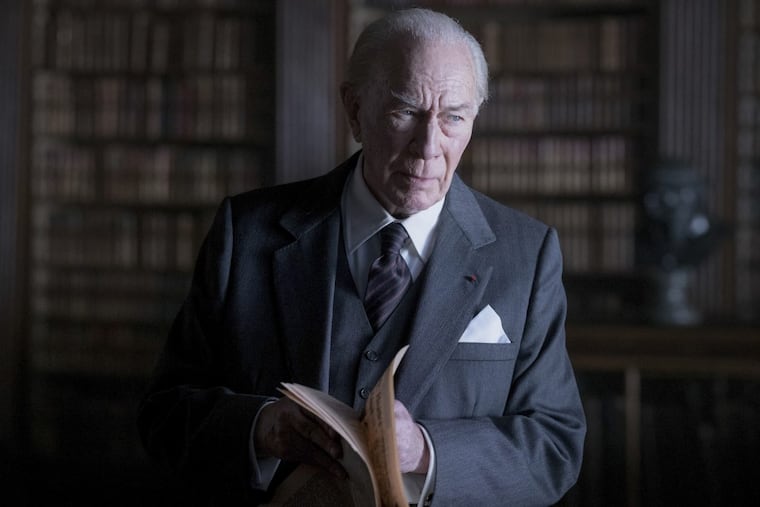'All the Money in the World': A good Plummer when you need one
In Ridley Scott's fact-based "All the Money in the World," criminals kidnap a grandson of billionaire oilman J. Paul Getty, played by Christopher Plummer.

All the Money in the World is a warning to movie stars caught in harassment scandals.
Not only can you be replaced, you can be replaced in nine days.
No matter how substantial your role.
Kevin Spacey had 22 scenes in All the Money in the World as skinflint billionaire J. Paul Getty. But when Spacey was implicated in a series of groping scandals, he was scrubbed from the movie and replaced with Christopher Plummer, who a month ago was completely uninvolved in the movie but who is now nominated for a Golden Globe for his role in it.
And he's pretty good, which should surprise no one. He's already played a wealthy miser this year — in The Man Who Invented Christmas, as Ebenezer Scrooge, a fellow who has much in common with Getty.
"There is a purity to beautiful objects that I've not found in human beings." he says, proving it by buying a stolen painting but refusing to pay for a stolen relative.
The story is based on a real case: When criminals abduct his grandson and demand $17 million, he says no on television, looking into the camera as though staring at the kidnappers themselves.
What's more, he seems to enjoy saying no. He has 13 other grandchildren, he says, and if he pays these thugs, he'll be paying ransom for the rest of his life.
Plummer was born to play characters like this. In fact, he's so good, I wondered about the feasibility of having him replace Mark Wahlberg, as well.
Wahlberg is out of his element here as a suave, globe-trotting fixer in Getty's employ, a former CIA agent now in charge of assessing geopolitical risks to the old man's far-flung empire. He's assigned, on the sly, to find out who kidnapped the boy.
Wahlberg has developed into a pretty good actor, but spectacles and bespoke suits and trench coats and continental charm are not his thing — he looks about as comfortable here as he did in The Truth About Charlie, wearing a beret and walking the streets of Paris. Left holding the baguette, quietly literally.
Wahlberg is often paired in the movie with Michelle Williams, mother of the abducted boy, who has little money of her own, and who by default becomes the lead negotiator — placed in an impossible position between a man who refuses to say yes and murderous criminals who won't take no for an answer.
Williams and Plummer are fine, yet for all their efforts the movie endures a strangely listless first hour. The kidnapping and subsequent investigation feel under-plotted, highlighting Wahlberg's curiously inert presence in the movie.
He stands around with his hands stuffed in his pockets, occasionally roused to say a pithy line: "Guns are for people who don't have money."
Only late in the game do events help director Ridley Scott highlight the themes involved — the idea that to an oilman like Getty, every human interaction is a transaction, everything is a commodity, and sometimes humans are at a discount to oil.